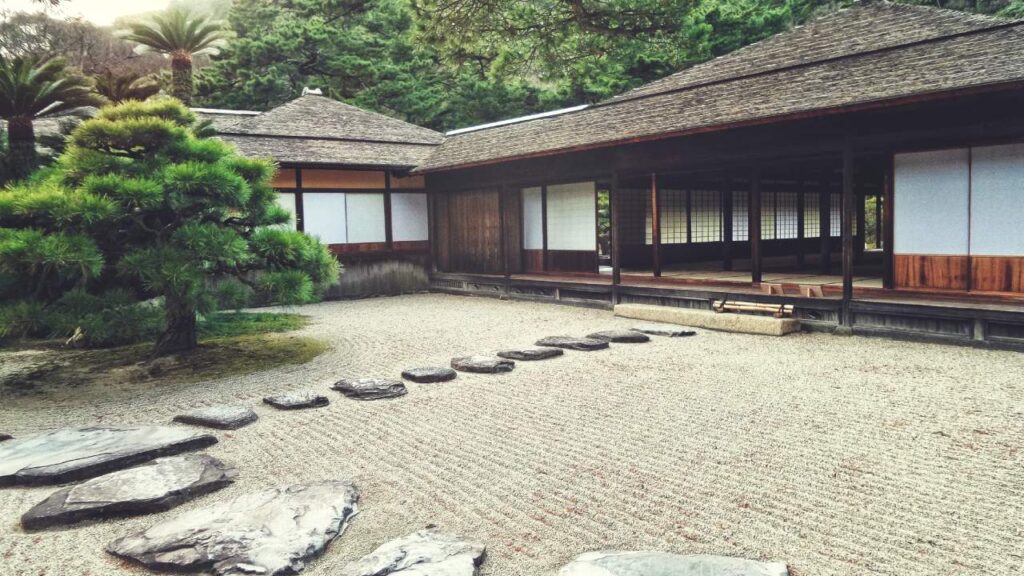Form is emptiness; emptiness is form. Form is not different than emptiness; emptiness is not different than form.
– Zen Buddhist Doctrine
One of the most customizable places in the home is the garden. Across the world, gardens are valued as a way for one to welcome the serenity of nature into their home. However, different cultures seek out natural beauty in unique ways.
In Western cultures, traditional gardens feature select plants and manicured lawns. Most natural elements are controlled and architectural pieces are precise and organized. Since Western philosophy usually promotes humankind’s dominion over nature, Western style gardens are consequently constructed to highlight the artificial creations of the gardener.
Alternatively, Eastern cultures (particularly Chinese and Japanese philosophy) emphasize natural beauty in the garden. Classical Chinese gardens and Japanese rock gardens both seek to capture the environment’s natural rhythms and spiritual equality between man and nature. Rather than creating a garden solely for aesthetic beauty, Eastern-style gardens compose expressions— like writing poetry or painting a landscape. Through this expression, gardeners hope to achieve zen: a tranquil state in which one is aware of their place in the universe. Feng Shui can help guide individuals to creating the perfect zen garden.
Zen Gardens For Longevity
Not to display but to suggest is the secret of infinity.
– Kazuo Okakura
The composition of zen gardens is influenced by the relativity between natural elements and an individual’s imagination. For example, the suggestion of flowing water may be represented through arranged rocks and raked gravel. The form of the rocks enables the imagination to visualize an ever-flowing, infinite stream. The beauty of zen gardens lies in the relationship between form, space, and imagination.
Rather than using flat grass lawns, zen gardens apply a variety of natural elements to create a complex, meditative garden. Most commonly used elements include rocks, gravel, trees, and moss. Feng Shui tools help to determine the best location for these elements. They are more than just forms and space— the elements of the garden work in a holistic manner to create a harmonious space. One goal of the zen garden is to preserve peace and longevity. Infinity may be represented by symbolic natural elements like a tortoise or an evergreen tree. Both elements suggest infinity and longevity through their slow-changing, enduring life-spans.
In addition to harmonious internal design, zen gardens consider the external, particularly the relationship between the Earth and the Sky. The forms of the garden can connect the Earth and the Sky in a variety of ways. Some examples include ponds that reflect the sun or moonlight, trees that move with the wind, and stones whose beauty may be enhanced by rainfall. Part of the beauty of zen gardens is the variety within them. Ultimately, one can access the tranquility of nature through a zen garden.
Aelita Leto’s Work With Zen Gardens
As a long-time member at and docent for the Hakone Gardens in Saratoga, Aelita Leto has a vast store of knowledge and experience with zen gardens.
Aelita’s current projects include designing a zen garden using appropriate elements on the property. Blending traditional Feng Shui practices with zen garden elements allows her to find correlations between a property and its ideal landscape. While Aelita makes recommendations about how to style traditional Eastern-style elements on the property, she ultimately provides guidance for achieving the peaceful, meditative state that is associated with zen gardens.
Article by Eliza Hallinan

